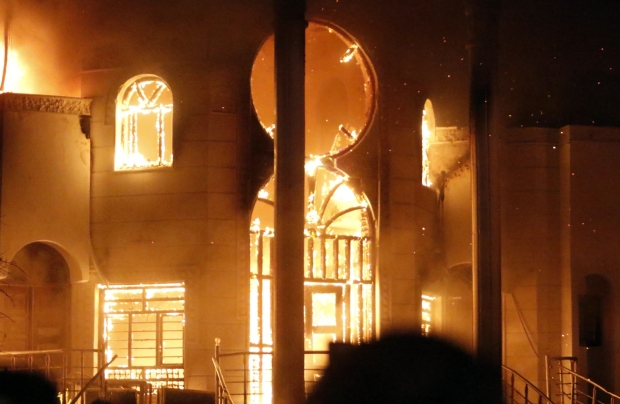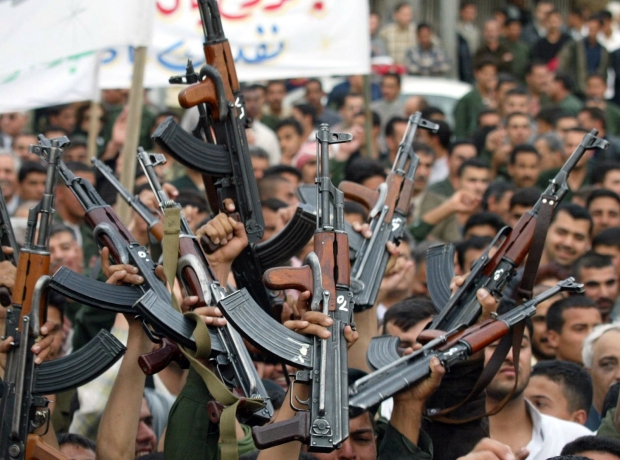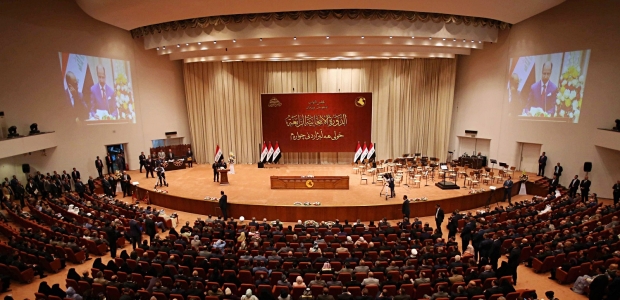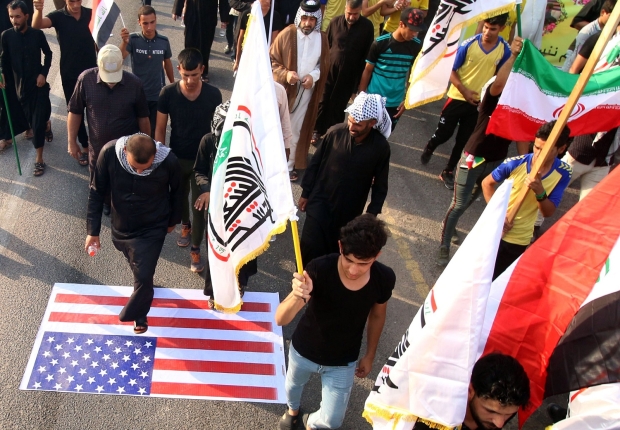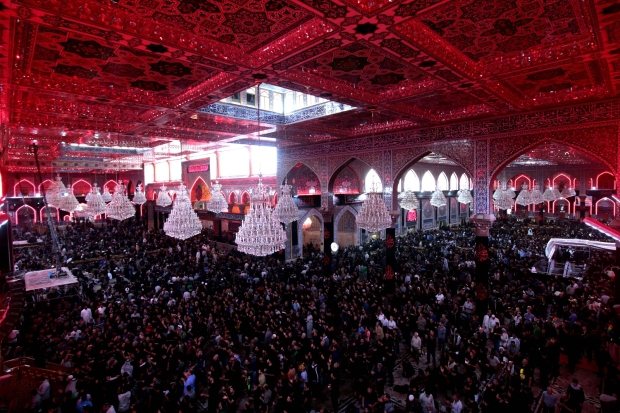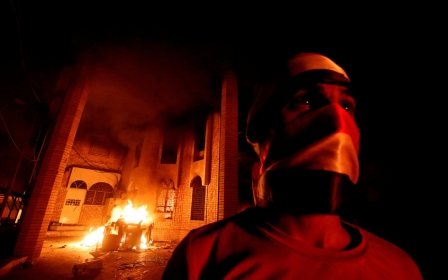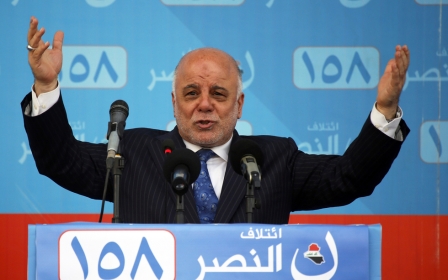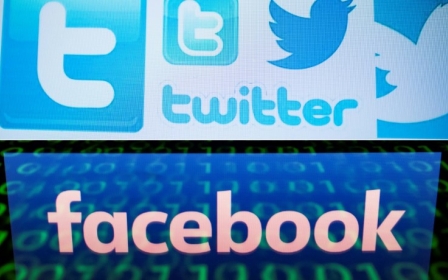Iran consulate in flames: How Basra fire fanned speculation in Tehran
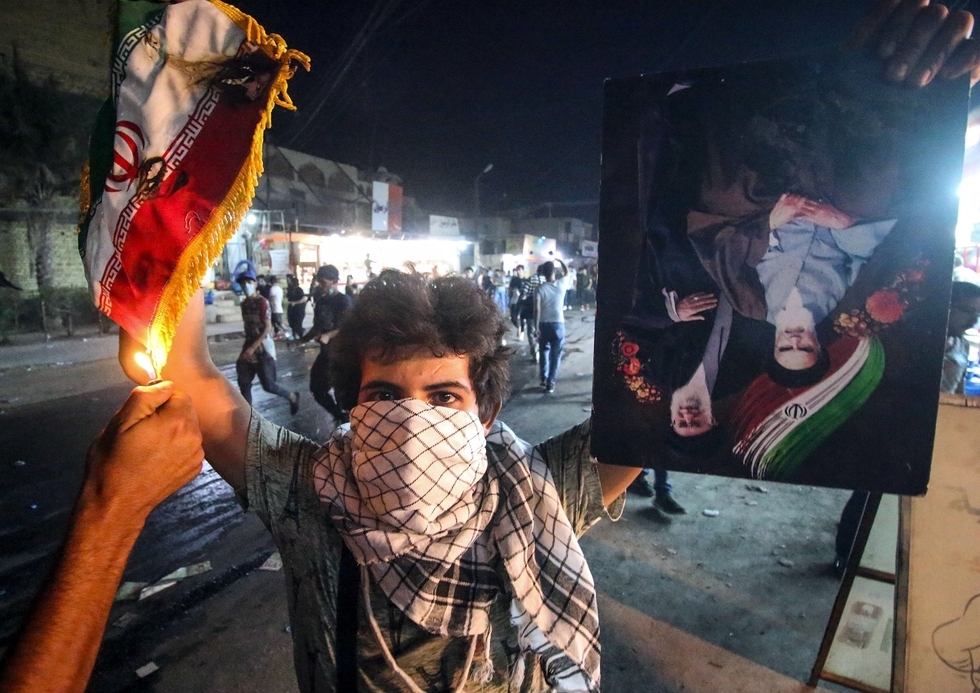
TEHRAN, Iran - The crowd of rioters, silhouetted against the flame-consumed buildings, raised their arms in celebration.
Some waved Iraqi flags, while others wrapped cloth around their faces to disguise their appearance.
Fire poured from the doorways and window frames of the cluster of buildings which had, until hours earlier, housed the Iranian consulate in Basra, Iraq's second biggest city.
Mercifully, no one was inside as all staff had left the building before the attack.
But the destruction of the diplomatic mission has sparked debate in Tehran, as politicians, media and analysts speculate on who was behind it, with motives stretching from the Baathist Party to Washington to claims of sex tourism in a holy city.
Iran: Aim was to poison relationship
The streets of southern Iran became a focal point for protests during the long hot summer of 2018, as residents demonstrated against corruption and cuts in essential services, including water supplies.
The Iranian diplomatic mission in Basra was not the only buildings attacked on 7 September: other targets included local government offices and the headquarters of pro-Iranian political parties. But none carried the international symbolism of the consulate.
During the past decade, Iran has increased its influence in Iraq through support for Shia groups and figures - the two nations are the only sizeable Shia-majority countries in the Middle East.
That closeness was apparent in the immediate aftermath of the blaze. Bahram Qassemi, Iran's foreign ministry spokesperson, called on Baghdad to identify and punish the attackers.
In response, Iraq's foreign ministry condemned the attack and urged demonstrators to refrain from action which had no connection to their calls for better public services.
At time of writing, around 30 suspects have been arrested in Basra, according to local media.
Iranian politicians, officials and analysts almost all agreed – the ultimate aim of the attack was to poison relations between Iranians and Iraqis.
1. The Baath Party
Mojtaba Zolnour, a conservative MP, said on 12 September: "In Basra events, the footsteps of Americans, Saudi Arabia and remainders of the dissolved Baath party can be seen completely."
The Iraqi news site Amasalah reported that the committee tasked with organising the protests in Basra said that Baath party elements and IS members had taken advantage of the unrest.
2. Islamic State
Recent comments on social media in Iran have also speculated at the involvement of Islamic State, which had its Iraqi power base in Mosul until the city was liberated in July 2017.
Ahmad Amir Abadi Farahani, an Iranian MP, blamed the group and said it had worked with Baathists.
Translation: [By taking advantage of] the waves of protests in Basra, Ba'athist and IS cores torched Iran's consulate in Basra to and some of the countries, which were [upset with] friendship between Iran and Iraq, became happy! Riyadh and Tel-Aviv know that this unrest project will also fail, and the fire of this sedition will be extinguished by millions of Arba'een pilgrims.
Diplomat Fereidoun Majlesi, who served at Iran’s Washington embassy as a political attache before the revolution of 1979, said that the Basra protests, which had begun as normal demonstrations, had been infiltrated.
“Seemingly, those IS fighters along with Baath party members, who used to rule in Mosul, have now shaved their beards and pretended to be ordinary people," Majlewsi said. "They took advantage of the situation in Basra and turned it violent."
3. Political positioning in Baghdad
Iraq is currently beset by political deadlock as parliamentary parties and coalitions lobby as to who will be the next prime minister in the wake of the May parliamentary elections.
Rasool Hosseini, an independent foreign policy analyst, believes that recent events in Baghdad, topped off by the assault on the Iranian consulate in Basra, are related to the tension around the choice of Iraq’s next prime minister.
On 6 September, Muqtada Sadr, leader of Sairoun, declared an alliance with Fatah.
“Diverting some Shia groups' attention to Basra events and marginalising them has served the other groups' interests," said Hosseini.
4. US regional ambition
Others saw wider international influence behind the attack.
Relations between Tehran and Washington, who have competed for influence in Iraq especially since the US-led invasion 15 years ago, have nose-dived since the election of US President Donald Trump.
Aboltfazl Hasanbeigi, a senior member of Iran's parliament foreign policy commission, said: "The attack on Iran's consulate was done by the support of US and Saudis money in order to overshadow the trilateral summit among Iran, Turkey and Russia [in Tehran]."
The summit, held in Tehran the day before the Basra attack, was to discuss Syria and especially avoid an assault on Idlib, the last rebel stronghold in the country after seven years of war.
5. Saudi Arabia
Majlesi also said that the support of Riyadh could not be discounted as a factor in the attack.
'There are some Wahhabi apologists inside Iran, spreading fake news and propaganda'
- Fereidoun Majlesi, diplomat“
The ever-present tension between the kingdom and the Islamic Republic has worsened during the past decade as each engages with the other through proxy players across Yemen, Lebanon and Saudi Arabia among others.
"The Saudis have said that they will attempt to bring the war inside Iranian soil,” Majlesi said.
“There are some Wahhabi apologists inside Iran, spreading fake news and propaganda.”
6. Attempts to destabilise Arba’een
Ayatollah Seyyed Mojtaba Hosseini, the representative of the Iranian leader Ali Khamenei in Iraq, said on 8 September that false news about Iranians had been spread in Iraq to discredit Iran, including rumours that Iranians had torched a bus carrying Iraqi visitors.
Heshmatollah Falahatpisheh, a moderate and the chairman of Iran's parliament foreign policy commission, highlighted that next month Karbala will host the Arba’een, the Shia pilgrimage which draws millions of Iranians to the northern Iraqi city.
"Such persons want to ruin the relations between Iran and Iraq at the level of the state and nations,” said Falahatpisheh.
7. Rumours about sex tourism
In recent months, claims have surfaced on Iranian social media that Iraqis are visiting the Iranian holy city of Mashhad, home to the shrine of the eighth Imam of Shia, for sex tourism.
Some commentators such as Abdullah Ganji, the conservative chief editor of influential daily Javan, argue that such rumours were part of the a plot to divide Iran and Iraq, and the attack on Basra was linked to this.
Translation: "The enemies are attempting to scuttle the relationships between Iraq and Iran and the people [of both nations] in order to reach their goals."
The reports of sex tourism have been denied by officials. In early September Alireza Rashidian, the governor of Mashhad, said that discrediting Mashhad had been ordered by the Saudis and started by The Guardian, which in 2015 published a report headlined “Prayer, food, sex and water parks in Iran's holy city of Mashhad.”
"Again such issues have resurfaced,” Rashidian said.
Where does this leave Iran and Iraq?
Some parliamentarians asked, in the wake of the attack, why Tehran is still playing a role in Iraq.
Gholam-Ali Jafarzadeh Imanabadi, an MP with the moderate Mostaghelan party, said that if Iraq was able to defend its own borders then Tehran should let it track down IS fighters itself and stop providing aid.
"If they can defend their own soil, there is no reason for us to be in Iraq. Why should we have [our men] martyred and pay the cost for defending Iraq?"
'Storming the Iranian consulate won't affect our bilateral ties, because our relationships with Iraq is brotherly and strategic'
- Iraj Masjedi, Iranian ambassador
But the remark was isolated in its anti-Iraqi tone.
While investigations into the attack continue, Iran opened its new consulate in Basra on 12 September – less than a week after the old one burnt down.
Iraj Masjedi, the Iranian ambassador, said: "Storming the Iranian consulate won't affect our bilateral ties, because our relationships with Iraq is brotherly and strategic. Those who torched the consulate have no relation to Iraq and we don’t accuse anyone."
And Nosratollah Tajik, Iran's former ambassador to Jordan, told Middle East Eye: "It is very unlikely that the relationship between Iran and Iraq will face tension and deep disagreement due to recent events.
"Iran and Iraq have shared interests and goals, and are old neighbours historically, and each is strategically dependent on the other."
Middle East Eye propose une couverture et une analyse indépendantes et incomparables du Moyen-Orient, de l’Afrique du Nord et d’autres régions du monde. Pour en savoir plus sur la reprise de ce contenu et les frais qui s’appliquent, veuillez remplir ce formulaire [en anglais]. Pour en savoir plus sur MEE, cliquez ici [en anglais].


